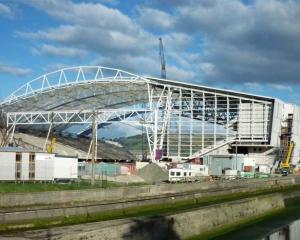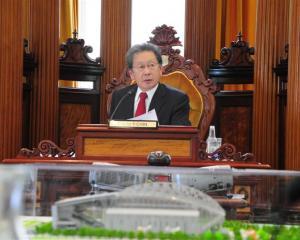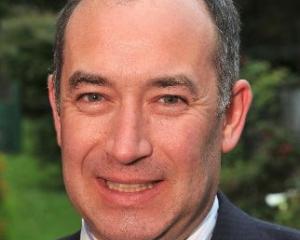The decisions, subject to possible appeal to the Environment Court, clear one more hurdle in the efforts to build the Otago Stadium at Awatea St and allow the University of Otago to develop new buildings on the site.
They follow a two-week hearing in November and sweep away the arguments of 106 people who opposed the zone changes.
Planning hearing commissioners Roger Tasker, John Lumsden and John Matthews have also confirmed a notice of requirement for a new harbour-side arterial route, subject to a list of conditions.
The decisions have been cautiously welcomed by Carisbrook Stadium Trust chairman Malcolm Farry, although he said the trust still had some critical issues to face in the next few weeks, including gaining funding from the Community Trust of Otago and the private sector, and getting the continuing support of the Dunedin City and Otago Regional Councils.
"I'm not sure it's ever going to be a project without challenges."
Stop the Stadium president Bev Butler could not be contacted yesterday, but said in a November email to members the group had decided not to engage a planner for the plan change hearings.
Instead, the group had "decided to conserve our funds for the possibility of an appeal in the Environment Court", she said.
Stadium opponent Elizabeth Kerr, who, with seven others, hired consultant planner Andrew Henderson to argue against the plan change and the notice of requirement, said yesterday she had not seen the decision.
But she was not surprised by the result as "we did see a total lack of evidence" at the hearing.
She would discuss the matter with Mr Henderson, and then consider whether to appeal.
Mr Farry said he hoped people who might consider an appeal might talk to the trust first to see if their issues could be dealt with.
"I'm hopeful a decision as clear as this will make objectors very seriously consider the impact before they lodge objections."
The commissioners went to some effort in their decision to discuss issues raised in submissions which were beyond the scope of the Resource Management Act, they said.
The hearing often doubled as a debate on the merits of funding the stadium, with many of the opponents and the 107 supporters of the plan change arguing matters outside the scope of the commissioners' brief.
The submissions calling for the redevelopment of Carisbrook were also unsuccessful as the commissioners said there was no requirement under the Act to assess such alternatives.
Concern about the level of consultation was "without merit", and the necessary information to evaluate the process had been made available, they said.
For many of the matters they were able consider, despite the arguments raised, evidence backing up claims had been lacking, the commissioners said.
No evidence had been provided that rezoning the stadium land would add to a shortage of industrial land; that the nearby quarry would impact on the stadium; or that the stadium would affect conference facilities already in place.
The commissioners said there had been no expert evidence for arguments the site was contaminated.
They were satisfied any work on areas that were contaminated would require a resource consent from the Otago Regional Council, and no additional control was necessary.
The council's evidence on the effects of sea-level rise on the stadium had not been challenged by a suitably qualified expert, and minimum floor levels planned were a "suitable response" to the issue.
An argument the "ethic of stewardship" had to be considered under the Act, meaning economic considerations were within the commissioners' purview, was also rejected.
For the notice of requirement the commissioners set several conditions, including a requirement the council apply to the Historic Places Trust for an archaeological authority; that access be provided to affected properties; provision of a heritage assessment of Parry St buildings; and provision of foot and cycle access.
Mayor Peter Chin said yesterday he could not comment until the appeal period was over.
Mr Farry said the cost of the land for the stadium was significantly less than the $33 million reported.
"The truth is that the council had to purchase land for roading, whether the stadium goes ahead or not, and for the University of Otago as well as for the stadium."






